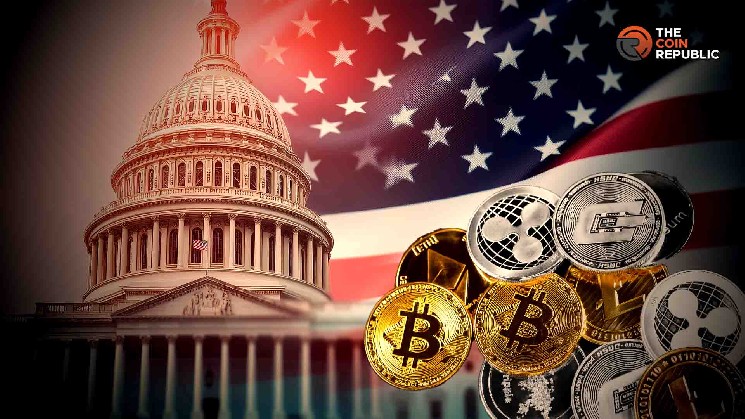Max Keiser, a prominent Bitcoin advocate and adviser to El Salvador’s President Nayib Bukele, recently tweeted a forceful rebuke of U.S. politicians supporting altcoins.
He wrote, pairing a Bitcoin mining scene with flag‑draped military coffins,
“If US politicians focused on 100% the image on left (Bitcoin only) instead of playing games with shitcoins, we’d no longer see any more images on the right.”
He added: “Grifting shitcoins means trading quick bucks for lives. The evidence is overwhelming and incontrovertible.” The post branded altcoin support as a dangerous trade-off, mixing profit-seeking with national risk.
Source: Max Keiser X
Keiser’s message targets more than token sales—it warns of ethical and existential stakes. He likened backing altcoins to sacrificing lives for fast gains.
His framing links financial choices to moral outcomes, bringing national security into the crypto debate. Political leaders, Keiser argues, are gambling with integrity and public trust.
Trump, Token Politics, and Power
This critique lands amid intensifying scrutiny of former President Donald Trump’s crypto dealings. Trump’s stablecoin, USD1, and his meme token $TRUMP have drawn billions in investment and criticism.
His family crypto venture World Liberty Financial raised more than $550 million to date, and critics argue this expands presidential influence in unregulated markets.
Senator Elizabeth Warren and others have raised conflict-of-interest concerns related to Trump’s crypto activities. This political backdrop amplifies Keiser’s argument: bitcoin purity versus politically motivated token ventures.
Keiser’s tweet didn’t name names—it used arresting visuals. The “image on left” displayed Bitcoin mining rigs; the “image on right” showed military coffins.
Such imagery implies dire consequences from policy choices. It underscores how financial decisions may ripple out into national well-being.
Keiser isn’t alone—some lawmakers are wary about crypto’s ethical implications. The Senate passed the GENIUS Act on June 18, 2025, to regulate stablecoins with a 68‑30 vote, spurred in part by concerns about conflicts-of-interest involving U.S. officials including Trump’s crypto interests.
Notably, the act prohibits Congress members—but not the president—from stablecoin ownership.
Growing Calls for Crypto Integrity
Keiser’s criticism revives discussions about priorities in public policy. Should leaders push for Bitcoin’s decentralized promise or support altcoin projects that may blur the lines between personal gain and public good?
Legal scholars warn that token-based revenue streams tied to sitting officials point to a governance conflict. Senator Warren warned during debates on the stablecoin bill,
“If Congress passes this bill, USD1 won’t just be a coercive tool … It will be a financial instrument blessed by the U.S. Government.”
Max Keiser’s message may reinforce bitcoin-maxi sentiment among institutional investors. With a fortified regulatory environment and public policy scrutiny, supporters argue that Bitcoin stands as a guardrail against politically entangled token opportunities.
Others see his rhetoric as inflammatory—but its impact is unmistakable among investors sensitive to stability and transparency.
By equating “shitcoin” support with jeopardizing lives, he challenges U.S. political leaders to reconsider their crypto priorities.
Read the full article here

